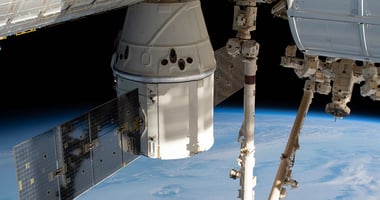You look up at the night sky and watch a tiny dot moving across, it can't be a bird, or a plane,...
The Positive Impact of Space Tourism on Innovative Space Exploration
We have moved into a new age of space exploration thanks to the entry of business into the mix. Virgin Galactic, Blue Origin, and Space X have recognized for some time that the future focus of America’s space program must include solutions to immediate and future needs like the hazards of “space junk” from defunct satellites and other garbage left behind from astronauts, alternatives to disposal of nuclear waste and other non-biodegradable material, colonization of other planets with natural resources that are, or will become scarce, and that could sustain human life long-term in the event of a global natural or man-made disaster, and could be the launch pad for more distant place exploration. In this article, we will mention how significant achievements from private business participation in the space program are helping to address these pressing needs.
Space Junk
The atmosphere is becoming cluttered with space debris at an alarming rate. Decades of astronauts dumping garbage into the atmosphere in orbit, as well as defunct satellites from many countries and, now, private companies, will impede space travel and restrict the launch and replacement of vehicles with new technology that could return to Earth or safely “self-destruct” at the end of their lifecycle. At first glance, the solution might seem obvious. Earth’s gravity will pull the debris toward its surface, causing friction and disintegration of the floating nuisances. The glitch in that logic, however, is that space exploration has expanded beyond the reach of our planet’s gravitational pull. Currently, there are 6,000 satellites circling Earth. 60% of those are defunct, and 40% operational.
With the support and assistance of NASA, SpaceX recently launched four astronauts into space bound for the International Space Station (“ISS”) using a recycled rocket and capsule known as the Dragon capsule (SpaceX first used the Dragon capsule on a mission in May 2020). This mission is the third crew flight in less than a year for Elon Musk’s rapidly expanding company. The new crew reached the International Space Station the day after the launch. Dragon carried the previous crew back to Earth.
Not only is the development of reusable space capsules a significant step toward decreasing space junk, it exemplifies the extent to which NASA has welcomed the collaboration with new entrants into space exploration. NASA also awarded SpaceX $3 billion contract to provide a fully reusable lunar lander that will transport astronauts to the surface of the moon as a “test case” for Musk’s ‘Starship.” The Starship will carry astronauts to Mars with the intent of building a city there.
The positive press Virgin Galactic, Blue Origin, and Space X have received is driving more research and development of spacecraft parts and technology, including an uptick in the number of companies interested in tackling the space junk problem. Among the emerging “environmentally sound” solutions are high-powered giant lasers to slow down the debris enough to cause reentry into the atmosphere and burn up, space balloons filled with gas attached to the debris with sufficient drag to force reentry, space pods that could knock debris out of orbit, tungsten dust in sufficient quantity introduced into low earth orbit on a trajectory opposite that of the targeted space junk to slow smaller space debris down to cause reentry, a space “garbage truck” that would carry 200 giant nets that could be extended out to scoop up space garbage, satellite recycling where existing inoperable satellites could be mined for parts, and a magnetized robotic arm to attach to any space object for disposal.
Planetary Colonization and Disposal of Material
Each of the three private companies has a unique focus. Virgin Galactic is interested in developing a market for space tourism and a rocket attached to a 747 to place small satellites in orbit. Space X is developing revolutionary new launch technology that experts predict will be cheaper and will restore the U.S. to a leadership position in launch technology innovation – a spot Russia has occupied until 2 years ago. Finally, Blue Origin’s new rocket engine has received such positive feedback that many experts believe it will be the “engine of choice.”
Virgin Galactic’s initiative to develop space tourism may be the springboard from which future emerging technologies will enable longer distance travel to transport people and supplies to and from space colonies, as well as to other destinations where materials that pose environmental, health, and safety risks on earth can be stored indefinitely. Advancements in launch technology such as SpaceX has developed, along with more efficient rocket engines like Blue Origin’s BE-4 rocket, will reduce the cost of space travel, which is essential to future interplanetary colonization. Reusable/recyclable rockets will help with cost reduction and address the space junk problem head on.
Observations
Over the last decade or so, it has become more and more apparent that private companies not only are stakeholders, but must be partners with the government in space travel and exploration. One of the first example of an emerging partnership occurred on May 25th, 2012, when a small teardrop-shaped capsule arrived at the International Space Station in a Dragon cargo capsule, owned and operated by SpaceX. The Dragon was the first commercial vehicle to dock with the station.
As science and technology have advanced, we have developed an acute awareness of potential global threats and the urgent need to engage the best experts for collaboration and contingency planning. Recent entrants into what has become known as the “space travel and exploration” industry like Virgin Galactic, SpaceX, and Blue Origin, have had demonstrated that a private-public partnership in space travel and exploration can be catalyst for the advancement of society.



